
Kairouan: The Spiritual Heart of Tunisia
Welcome to Kairouan, one of the most important Islamic cities in the world and a UNESCO World Heritage Site. Known as the fourth holiest city in Islam, Kairouan is a treasure trove of history, culture, and religion. Founded in the 7th century, it is home to some of the oldest and most impressive Islamic architecture in North Africa. One of the must-visit sites in Kairouan is the Great Mosque, also known as the Mosque of Uqba. This grand structure, with its towering minaret and vast prayer hall, is a testament to the city's historical significance. The mosque's courtyard and prayer hall are adorned with beautiful mosaics and intricate woodwork, making it a true masterpiece of Islamic art. Kairouan is also famous for its vibrant souks, where you can find everything from traditional carpets and pottery to aromatic spices and local delicacies. Wander through the narrow, winding streets of the medina, and you'll discover a city that feels like a living museum, with its ancient walls and historic buildings. Another highlight is the Aghlabid Basins, ancient water reservoirs that showcase the engineering prowess of the early Islamic period. These basins were once used to supply water to the city and its surrounding areas, and they remain a fascinating site to explore. Whether you're a history buff, an architecture enthusiast, or simply someone looking to immerse yourself in a rich cultural experience, Kairouan offers something for everyone. It's a city where the past and present blend seamlessly, creating an unforgettable travel destination.
Local tips in Kairouan
- Visit the Great Mosque early in the morning to avoid crowds and enjoy a peaceful experience.
- Dress modestly out of respect for the local culture, especially when visiting religious sites.
- Take a guided tour to fully appreciate the historical significance and architectural details of the city.
- Try the local sweets, especially the famous Makroud, a date-filled pastry.
- Bring cash, as many of the smaller shops in the souks do not accept credit cards.
Kairouan: The Spiritual Heart of Tunisia
Welcome to Kairouan, one of the most important Islamic cities in the world and a UNESCO World Heritage Site. Known as the fourth holiest city in Islam, Kairouan is a treasure trove of history, culture, and religion. Founded in the 7th century, it is home to some of the oldest and most impressive Islamic architecture in North Africa. One of the must-visit sites in Kairouan is the Great Mosque, also known as the Mosque of Uqba. This grand structure, with its towering minaret and vast prayer hall, is a testament to the city's historical significance. The mosque's courtyard and prayer hall are adorned with beautiful mosaics and intricate woodwork, making it a true masterpiece of Islamic art. Kairouan is also famous for its vibrant souks, where you can find everything from traditional carpets and pottery to aromatic spices and local delicacies. Wander through the narrow, winding streets of the medina, and you'll discover a city that feels like a living museum, with its ancient walls and historic buildings. Another highlight is the Aghlabid Basins, ancient water reservoirs that showcase the engineering prowess of the early Islamic period. These basins were once used to supply water to the city and its surrounding areas, and they remain a fascinating site to explore. Whether you're a history buff, an architecture enthusiast, or simply someone looking to immerse yourself in a rich cultural experience, Kairouan offers something for everyone. It's a city where the past and present blend seamlessly, creating an unforgettable travel destination.
When is the best time to go to Kairouan?
Iconic landmarks you can’t miss
Great Mosque of Kairouan
Explore the Great Mosque of Kairouan, a UNESCO World Heritage site that showcases the rich Islamic heritage and stunning architecture of Tunisia.
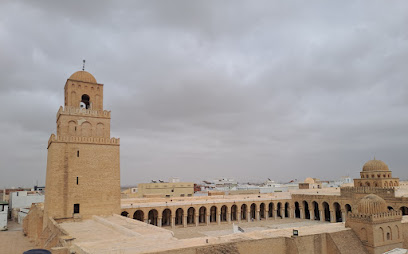
Kairouan Grand Mosque
Explore the Kairouan Grand Mosque, a UNESCO World Heritage site showcasing the rich Islamic heritage and architectural beauty of Tunisia.
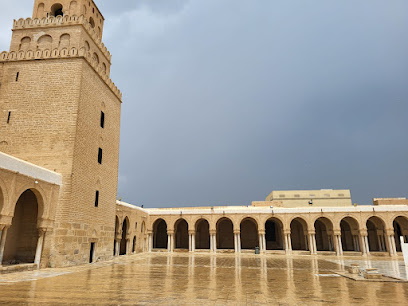
Basins of Aghlabides
Explore the historic Basins of Aghlabides in Kairouan, a testament to ancient engineering and the rich cultural heritage of Tunisia.
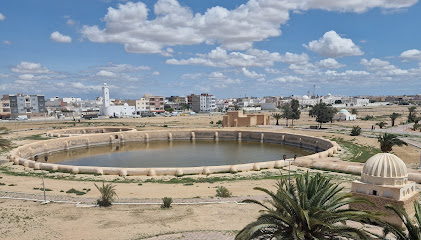
Barbier Mausoleum
Explore the Barbier Mausoleum in Kairouan, an architectural gem steeped in history and spirituality, showcasing Tunisia's rich Islamic heritage.
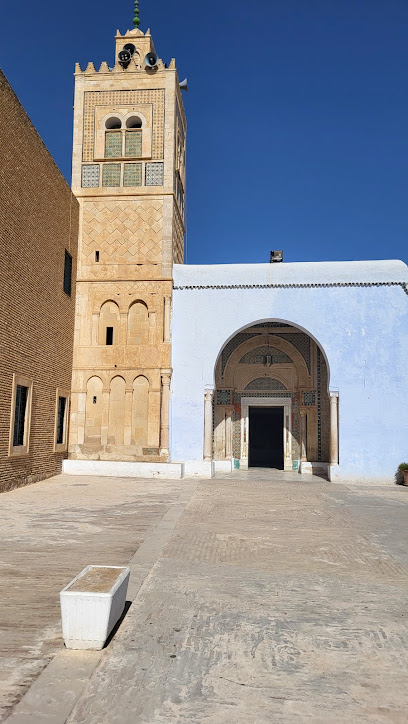
Zaouia of Sidi Sahabi
Explore the Zaouia of Sidi Sahabi in Kairouan, a historic monastery rich in Islamic heritage and stunning architecture.
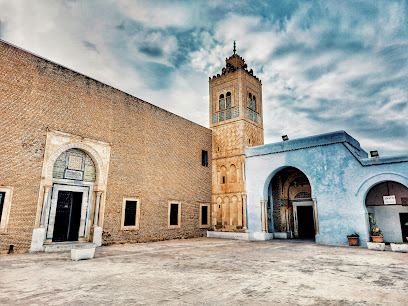
Mosque of the Three Doors
Discover the architectural marvel of the Mosque of the Three Doors, a historical gem in Kairouan, rich in Islamic heritage and artistic beauty.
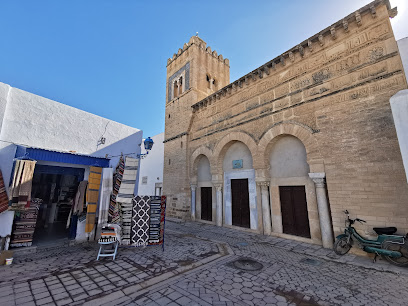
House of the Governor
Discover the House of the Governor in Kairouan, a historical landmark that encapsulates Tunisia's rich cultural heritage and architectural beauty.
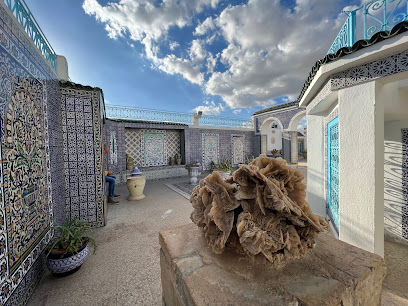
Médina de Kairouan
Discover the rich history and vibrant culture of the Médina de Kairouan, a UNESCO World Heritage site and a treasure of Islamic architecture.
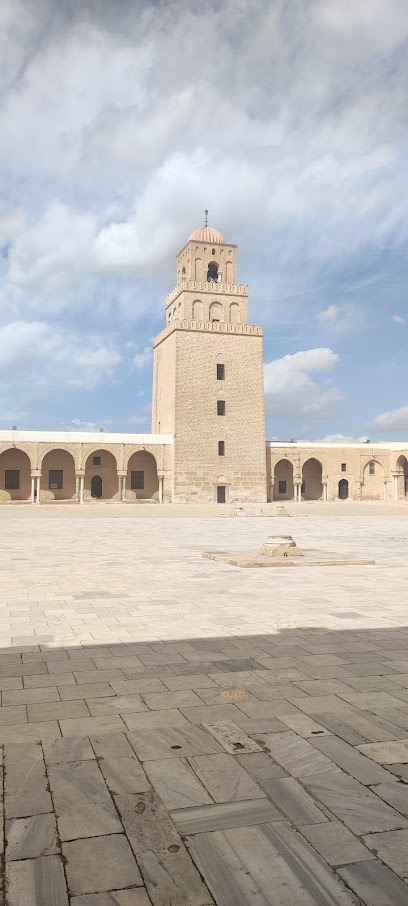
Museum of Carpets
Explore the Museum of Carpets in Kairouan, where the vibrant history and artistry of Tunisian carpet weaving come to life in stunning displays.
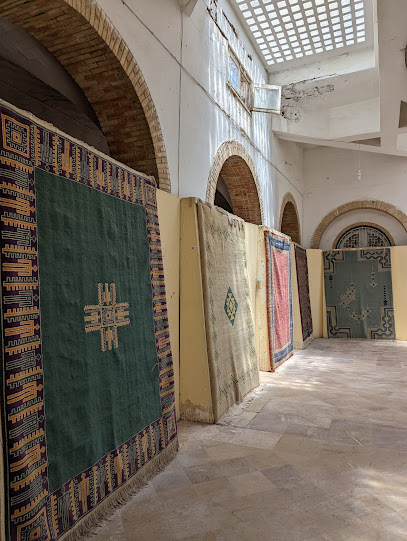
Mausoleum Sidi Amor Abada
Discover the spiritual essence and architectural beauty of Mausoleum Sidi Amor Abada in Kairouan, a must-visit historical landmark in Tunisia.
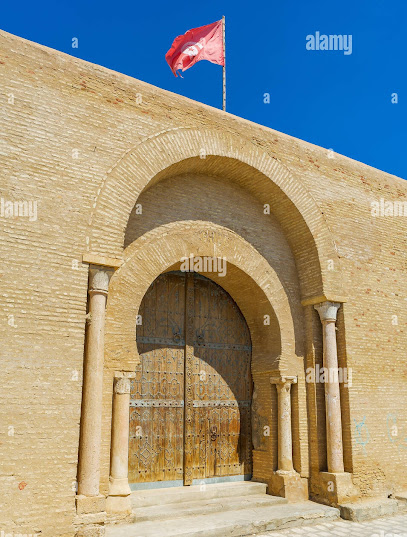
Mausoleé Sidi Amor Abada
Explore the tranquil Mausolée Sidi Amor Abada, a cultural gem in Kairouan, Tunisia, where history and spirituality intertwine beautifully.
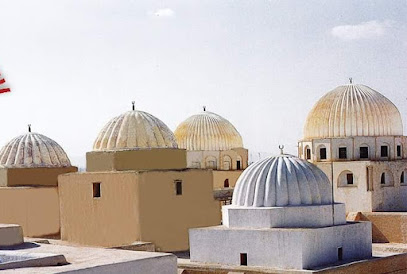
Minaret of the Great Mosque of Kairouan
Explore the historical elegance of the Minaret of the Great Mosque of Kairouan, a stunning testament to Tunisia's rich Islamic heritage and architectural brilliance.
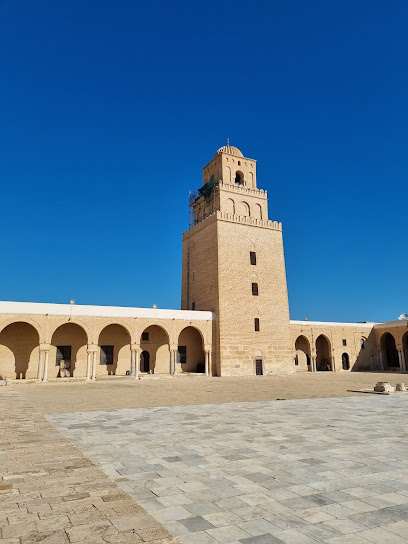
Bab El Jadid
Discover the magnificent Bab El Jadid in Kairouan, a stunning historical landmark showcasing rich architecture and the vibrant culture of Tunisia.
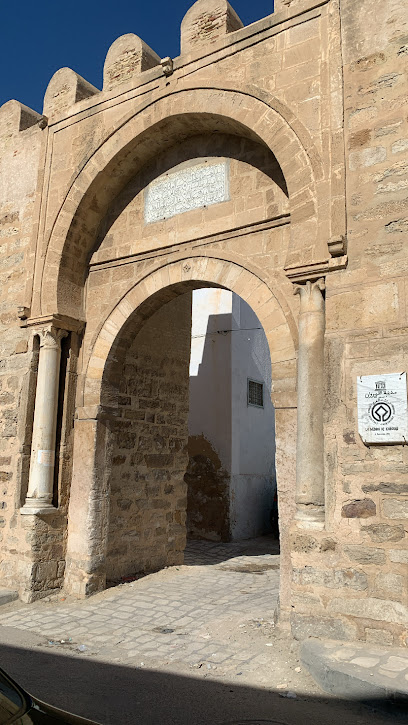
Stadmauern Kairoan
Discover the historical significance of Stadmauern Kairoan, a majestic landmark showcasing the architectural beauty and rich heritage of Tunisia.
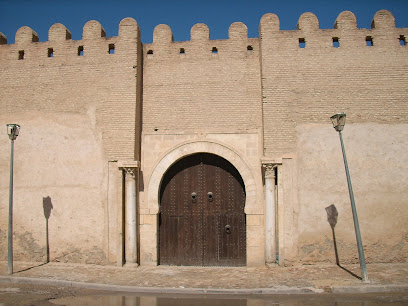
Altstadt Kairouans
Discover the historical marvel of Altstadt Kairouan, where ancient architecture and rich Islamic culture come together in Tunisia's spiritual heart.
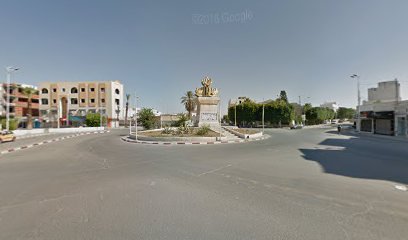
Unmissable attractions to see
Mall of Sousse
Discover a world of shopping, dining, and entertainment at the Mall of Sousse, a premier destination for tourists in Tunisia.
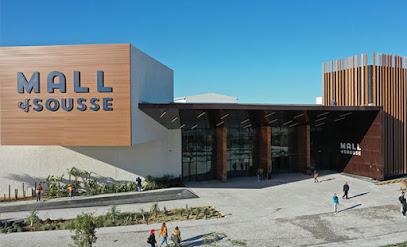
Great Mosque of Kairouan
Discover the Great Mosque of Kairouan, a UNESCO World Heritage site and a masterpiece of Islamic architecture, steeped in history and spirituality in Tunisia.
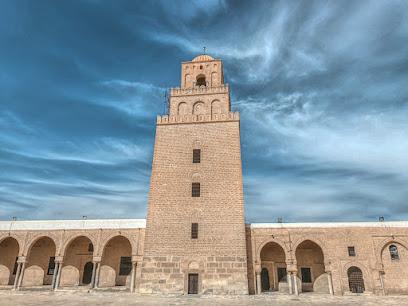
Mosque of the Three Doors
Explore the Mosque of the Three Doors in Kairouan, a magnificent emblem of Islamic architecture and history, inviting travelers to discover its serene beauty.
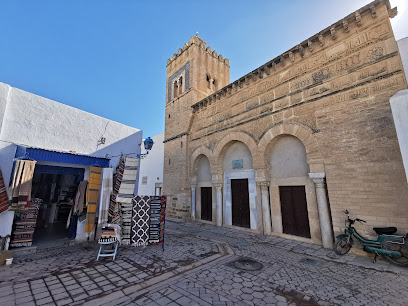
Parc d'attractions Kids Land
Discover the magic of Kids Land Amusement Park in Kairouan, where fun and adventure await for families and thrill-seekers alike.
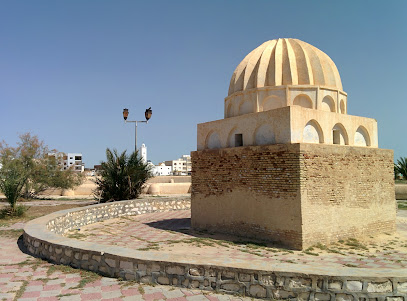
Etnafes - Adventures, Hiking, Excursions, Guest House and Artisanal Product
Explore the natural beauty and cultural richness of Kairouan at Etnafes, your go-to destination for hiking adventures and artisanal treasures.
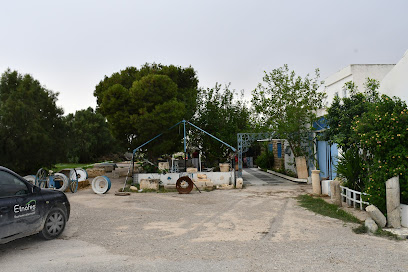
National Museum of Islamic Art of Raqqada
Discover the captivating world of Islamic art at the National Museum of Islamic Art of Raqqada, a cultural gem in the heart of Kairouan.
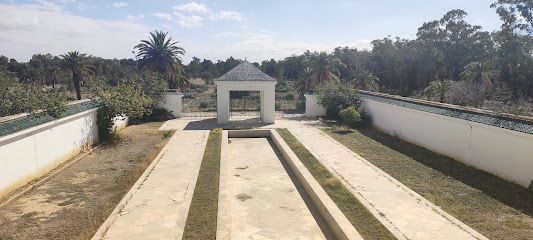
Mausoleé Sidi Amor Abada
Explore the Mausoleé Sidi Amor Abada in Kairouan, Tunisia, where history and stunning Islamic architecture come together to create a unique cultural experience.
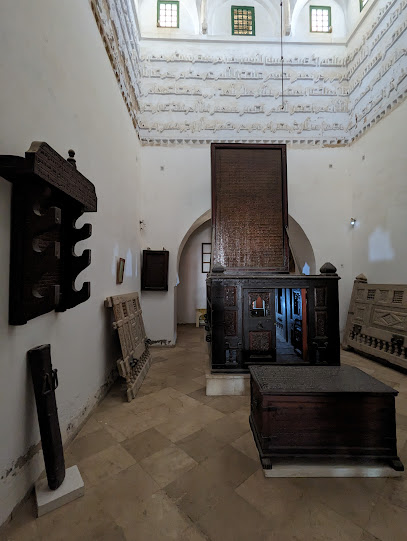
The twin Canons
Explore the Twin Canons of Kairouan, a historical landmark that embodies Tunisia's rich cultural heritage and architectural marvels.
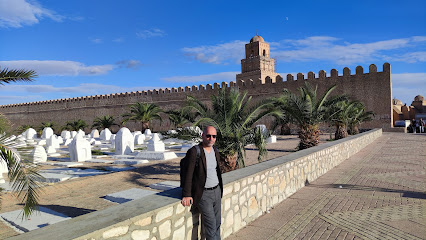
THE BEST GARDEN
Discover tranquility at The Best Garden in Kairouan, a beautiful retreat filled with vibrant flowers and lush greenery, perfect for relaxation and exploration.
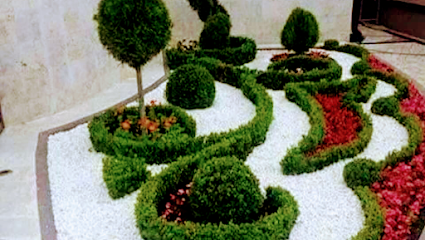
Route el Djem
Experience the exhilarating rides and family-friendly attractions at Route el Djem, Tunisia's top amusement park for tourists of all ages.
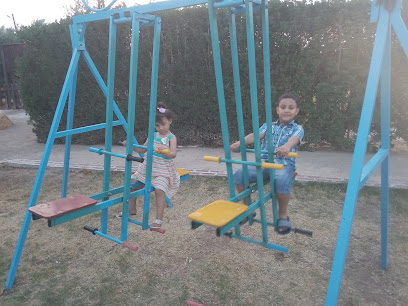
Parc Siouri ( détente promenade loisir)
Discover the serene beauty of Parc Siouri in Kairouan, a perfect park for relaxation and leisurely strolls amidst nature.
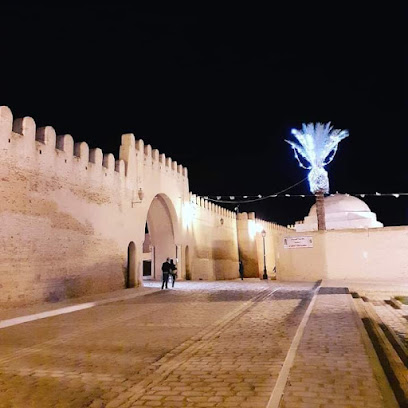
Jardin du Quartier
Explore the lush beauty of Jardin du Quartier, a tranquil garden in Kairouan perfect for relaxation, nature walks, and family outings.
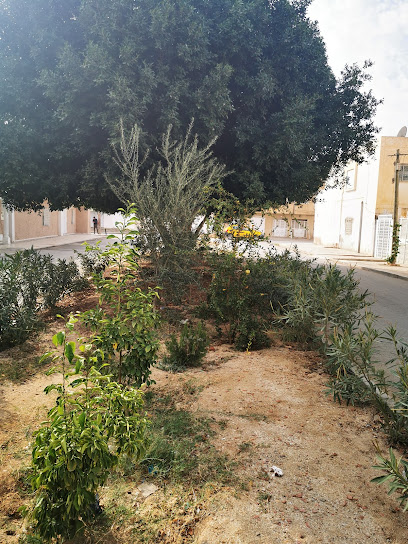
I Love Kairouan sign
Discover Kairouan's vibrant culture at the 'I Love Kairouan' sign, a colorful landmark perfect for memorable photos and cultural immersion.
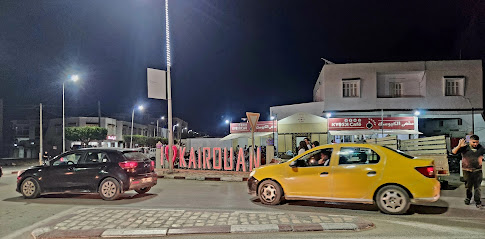
احمد ساسي ولد الشاف
Discover the tranquil beauty of Ahmad Sasi's Garden in Kairouan, a lush oasis perfect for relaxation and nature appreciation in Tunisia.

Centre de presentation patrimoine de kairouan
Explore the rich cultural heritage of Kairouan at the Centre de Presentation, a gateway to the city's historical significance and artistry.
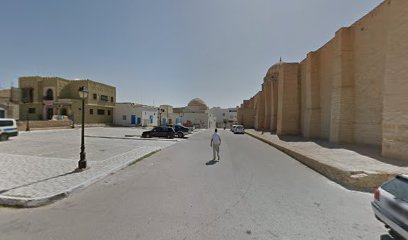
Essential places to dine
El Brija Restaurant
Experience the best of Tunisian cuisine at El Brija Restaurant in Kairouan - where tradition meets taste.
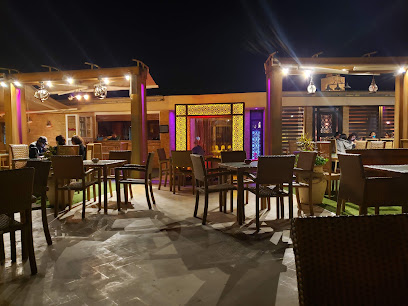
Dar Abderrahman Zarrouk
Savor authentic Tunisian cuisine at Dar Abderrahman Zarrouk in Kairouan – where every meal tells a story.
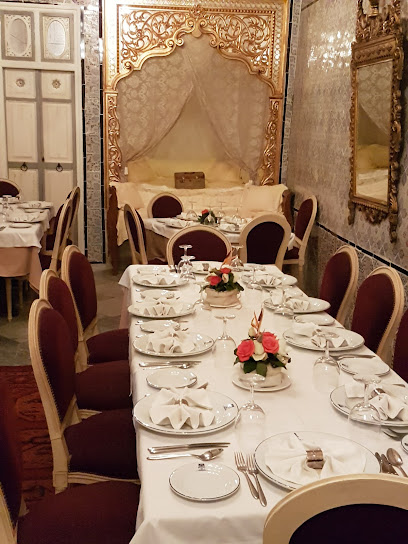
Restaurant Nakcha
Experience authentic Tunisian cuisine at Restaurant Nakcha in Kairouan's beautiful Jardin Riahd Sahnoun.
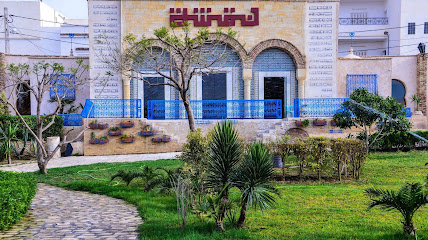
Kafteji Boudissa
Discover the flavors of Tunisia at Kafteji Boudissa - where tradition meets taste in every dish.
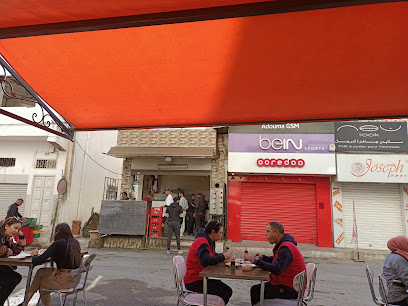
GO Café
Discover the authentic tastes of Tunisia at GO Café in Kairouan's historic Médina – where tradition meets flavor.
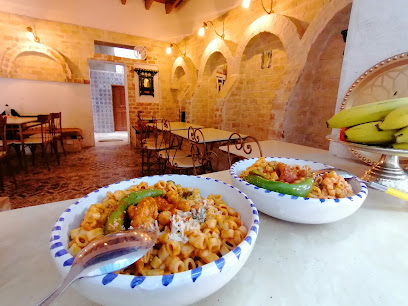
Kids Land
Discover Kids Land in Kairouan - where family dining meets fun-filled experiences in a delightful atmosphere.
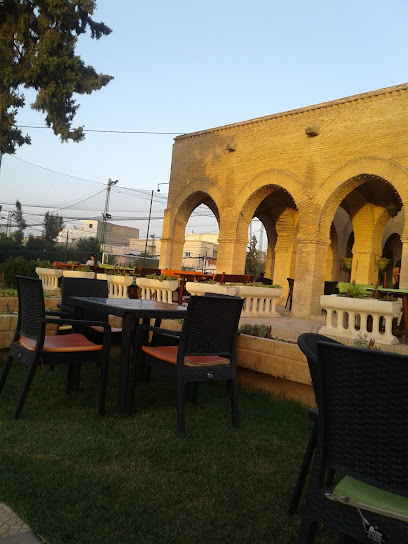
Dar Mima Chez Mamie
Discover authentic Tunisian flavors at Dar Mima Chez Mamie - Kairouan's beloved café offering delicious brunch and the finest coffee.
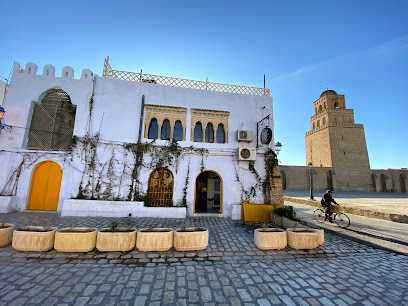
Sultan
Discover authentic Tunisian cuisine at Sultan in Kairouan – where every meal tells a story.
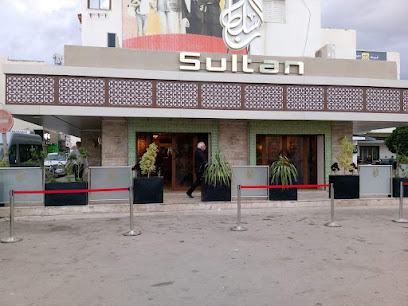
Saraya al bey
Experience authentic Tunisian cuisine at Saraya al Bey in Kairouan - where every dish tells a story.
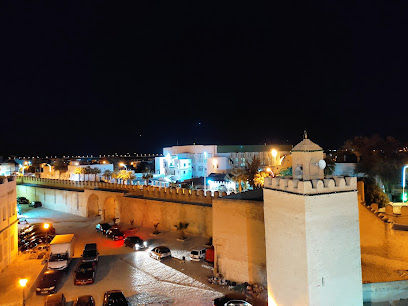
Charlot Restaurant
Experience authentic Tunisian cuisine at Charlot Restaurant in Kairouan - where tradition meets flavor in every dish.
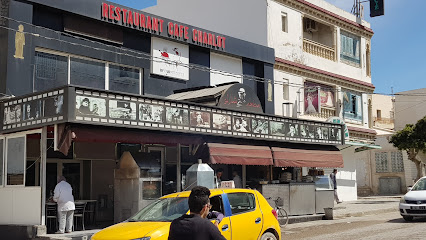
كفتاجي خيري kafteji khayri
Experience authentic Tunisian cuisine at كفتاجي خيري in Kairouan - where tradition meets taste.
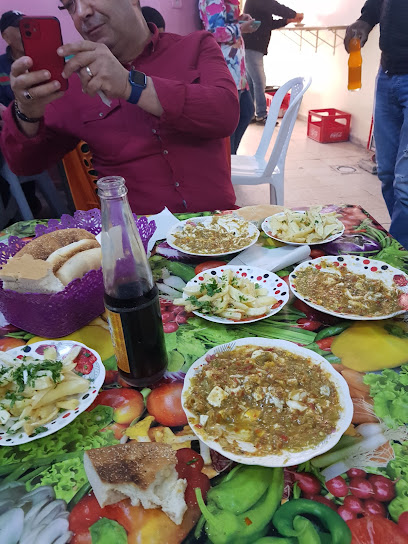
دار لِلاَّ حبيبة
Savor authentic Tunisian cuisine at Dar Lila Habiba in Kairouan - where tradition meets flavor.
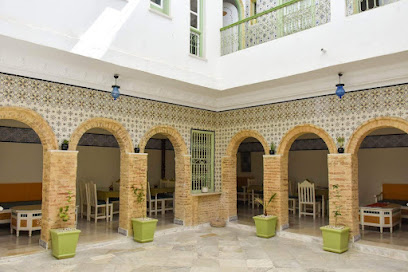
Restaurant Abir
Experience authentic Tunisian flavors at Restaurant Abir in Kairouan - where every meal tells a story.
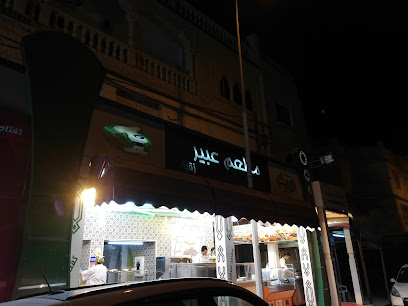
Ci Gusta Kairouan
Experience the joy of indulgence at Ci Gusta Kairouan—where every sundae tells a delicious story.
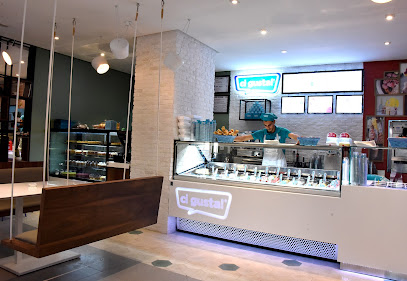
Plan B kairouan
Experience authentic Tunisian cuisine at Plan B Kairouan - a delightful restaurant offering local flavors in a warm atmosphere.
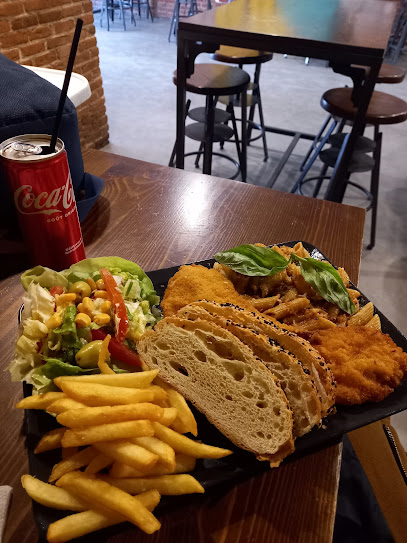
Markets, malls and hidden boutiques
Perle d'amour
Explore Perle d'amour in Kairouan for exquisite handcrafted jewelry, celebrating the rich artistry of Tunisia's cultural heritage.
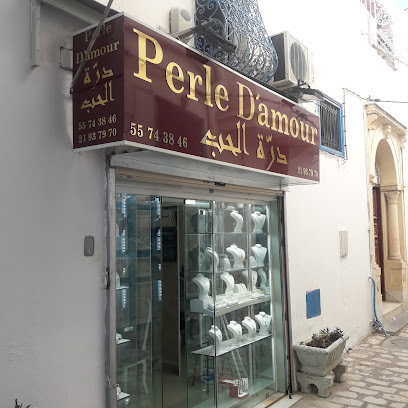
EXIST
Discover the vibrant essence of Kairouan at EXIST, a boutique showcasing unique local craftsmanship and contemporary design.
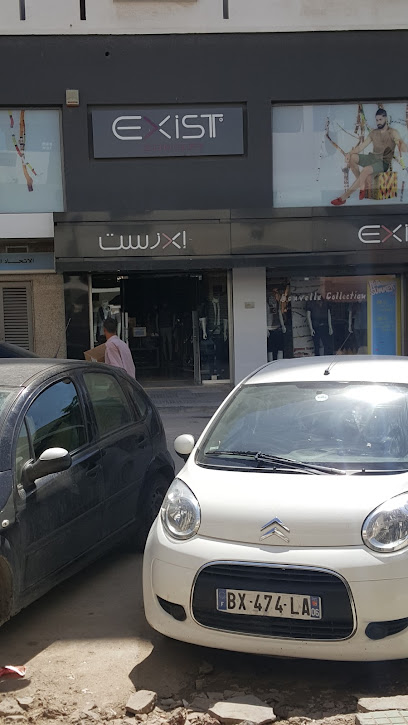
Agora informatique
Explore Agora Informatique in Kairouan for a unique blend of modern tech and traditional Tunisian craftsmanship.
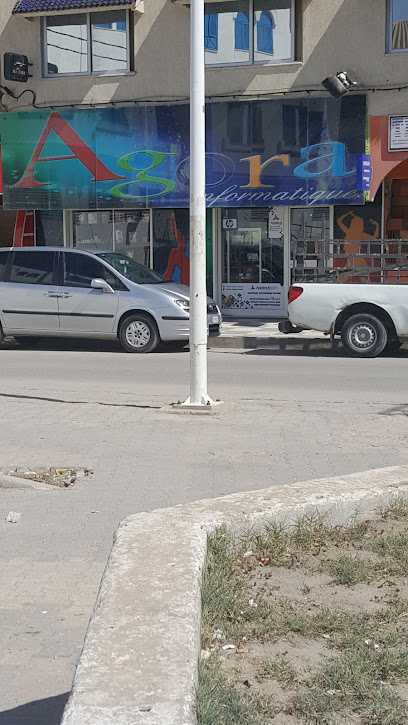
Dari Kairouan home goods store
Explore the essence of Kairouan at Dari Kairouan Home Goods Store, where local craftsmanship meets unique home decor treasures.
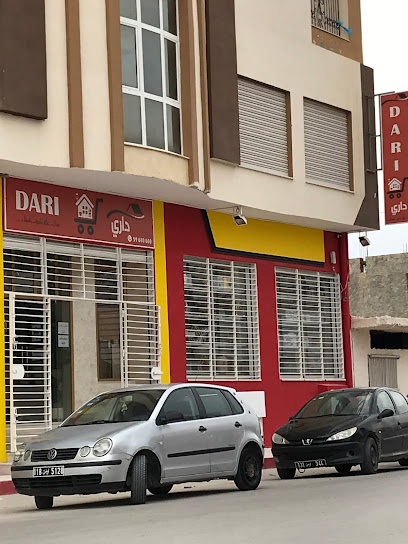
Sghir couture Kairouan
Discover exquisite fashion at Sghir Couture Kairouan, where traditional craftsmanship meets modern style in a vibrant shopping experience.
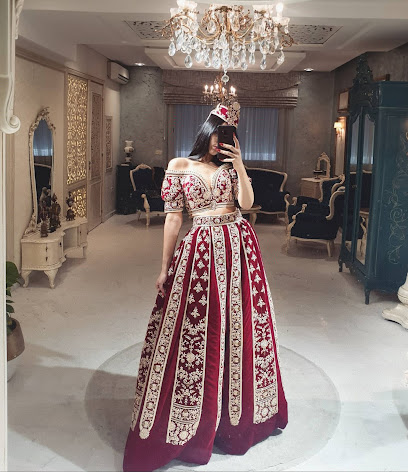
Mon cadeau hamza
Explore the exquisite world of fragrances at Mon Cadeau Hamza in Kairouan, where every scent tells a story of tradition and craftsmanship.
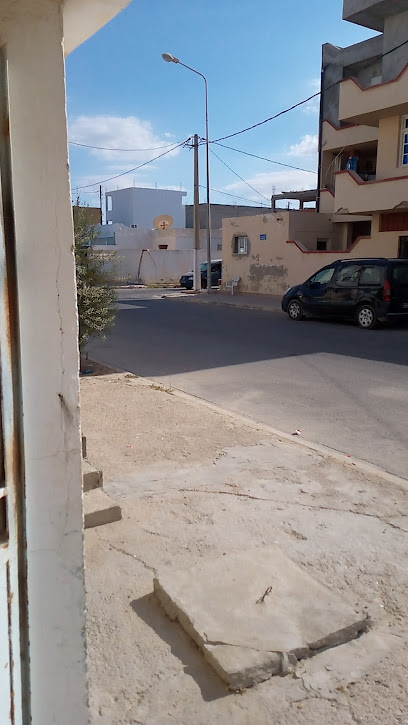
NEXT KAIROUAN
Explore NEXT KAIROUAN, a clothing store in Kairouan that offers a blend of traditional and modern fashion, perfect for unique souvenirs and stylish attire.
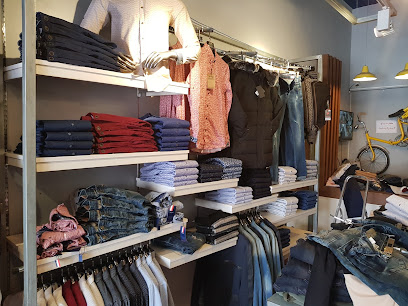
HA Kairouan
Explore the unique fashion offerings of HA Kairouan, a clothing store that blends tradition with modern style, right in the heart of Tunisia.
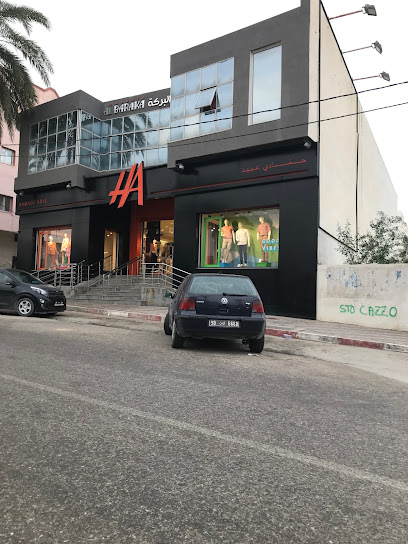
Fabio kairouan
Discover stylish and comfortable children's clothing at Fabio Kairouan, the perfect stop for families and tourists in Tunisia.
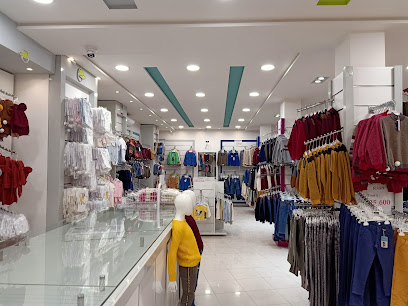
Tech Space
Explore unique fashion accessories at Tech Space in Kairouan, where modern style meets local craftsmanship in a vibrant shopping experience.
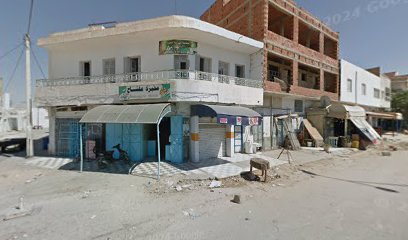
نصيب للعطور
Explore نصيب للعطور in Kairouan for an unforgettable journey through the scents of Tunisia, offering unique perfumes and traditional gifts.
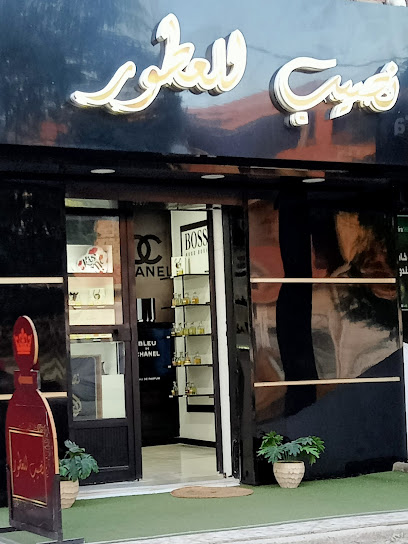
Go Sport Raef
Explore the latest fashion trends at Go Sport Raef, Kairouan's top clothing store with stylish apparel for everyone.
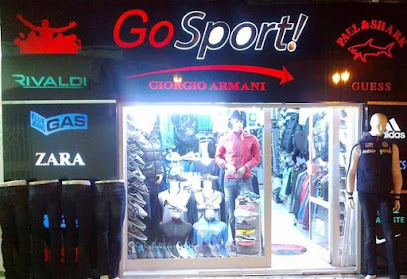
Boutique Hlioui
Explore Boutique Hlioui in Kairouan for exquisite clothing that embodies the spirit of Tunisian culture and craftsmanship.
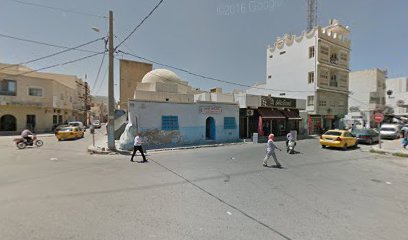
parfumerie l'orient
Explore the enchanting world of fragrances at Parfumerie L'Orient in Kairouan, where tradition meets exquisite craftsmanship.

Maison de luxe
Discover the elegant charm of Maison de luxe, a premier gift shop in Kairouan, showcasing exquisite handcrafted treasures of Tunisia.

Essential bars & hidden hideouts
El Brija Restaurant
Discover the flavors of Tunisia at El Brija Restaurant, a culinary gem in the heart of Kairouan, offering authentic dishes and a warm atmosphere.
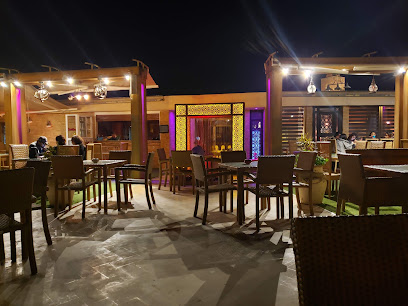
Dar Abderrahman Zarrouk
Savor the rich flavors of authentic Tunisian cuisine at Dar Abderrahman Zarrouk in Kairouan, where tradition meets taste.
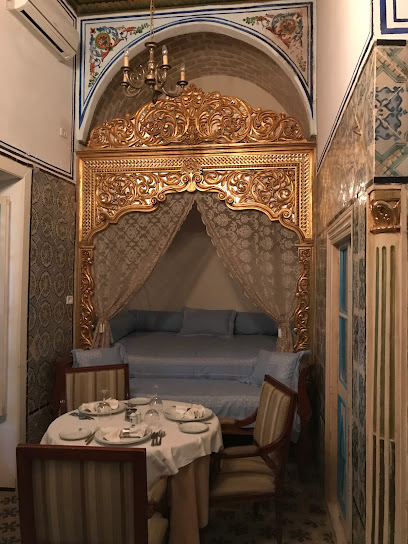
GO Café
Experience the unique blend of traditional Tunisian cuisine and modern café culture at GO Café in the heart of Kairouan's Medina.
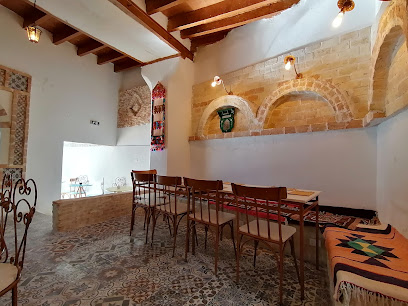
Dar Mima Chez Mamie
Experience the authentic flavors of Kairouan at Dar Mima Chez Mamie, a cozy cafe known for its delightful brunch and warm atmosphere.
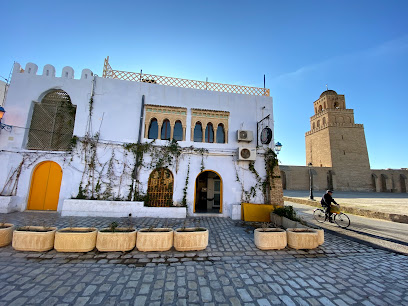
Charlot Restaurant
Experience the rich flavors of traditional Tunisian cuisine at Charlot Restaurant in Kairouan, a culinary gem for every traveler.
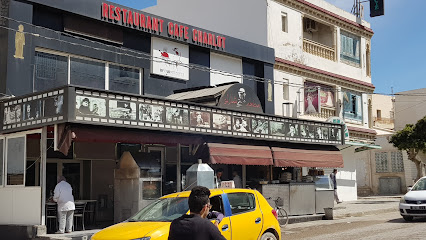
دار لِلاَّ حبيبة
Discover the authentic flavors of Tunisia at دار لِلاَّ حبيبة, a must-visit restaurant in the historic medina of Kairouan.
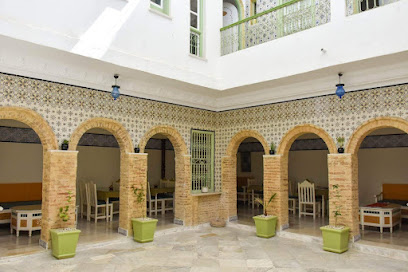
كفتاجي خيري kafteji khayri
Experience the rich flavors of Tunisia at Kafteji Khayri, where every dish tells a story of culinary heritage.
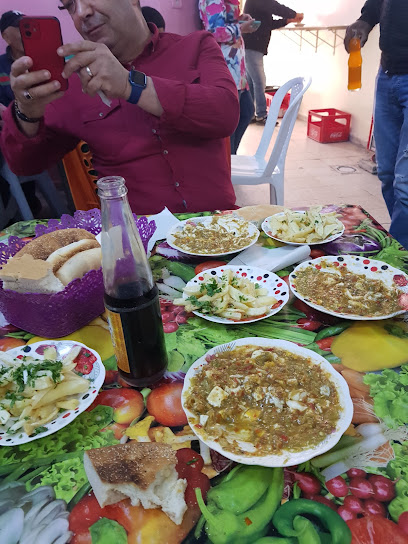
El Abbassia -Snacks & Drinks-
Discover El Abbassia in Kairouan, a cozy coffee shop offering a delightful mix of snacks and beverages for a perfect break during your travels.
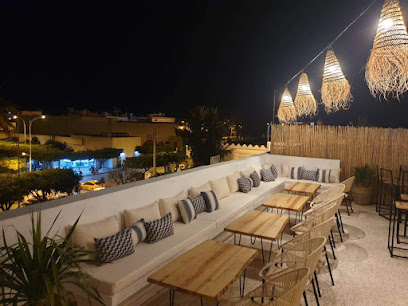
Mama chippo
Experience authentic Tunisian cuisine at Mama Chippo, a culinary jewel in the heart of Kairouan, perfect for all food lovers.
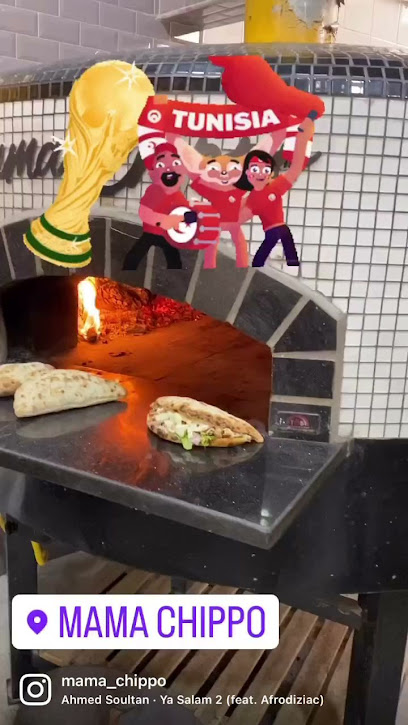
The Square
Experience the authentic flavors of Tunisia at The Square, where culinary tradition meets modern dining in the heart of Kairouan.
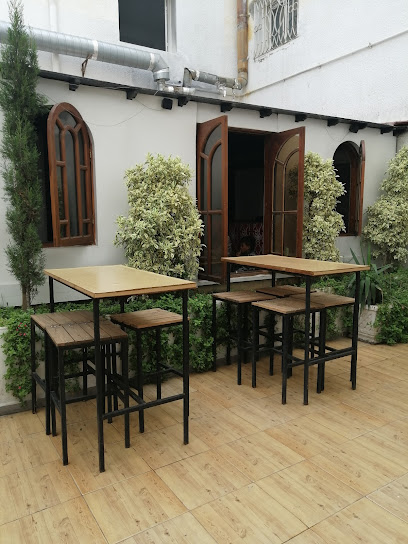
Café Diwen
Discover the flavors of Kairouan at Café Diwen, where traditional Tunisian cuisine meets a cozy tea house atmosphere.
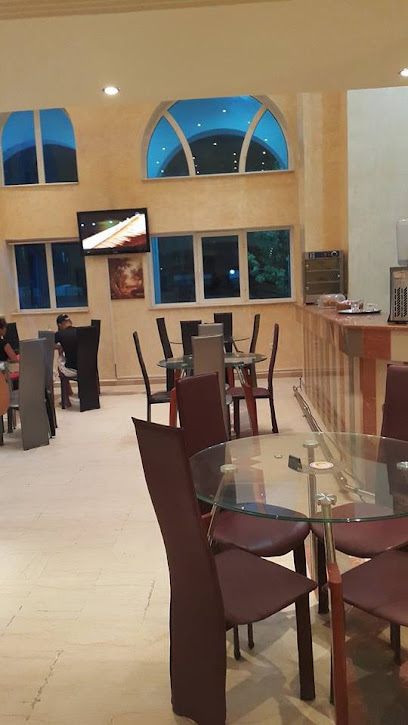
Vintage bistro
Experience the heart of Tunisian cuisine at the charming Vintage Bistro in Kairouan, where flavor and ambiance unite.
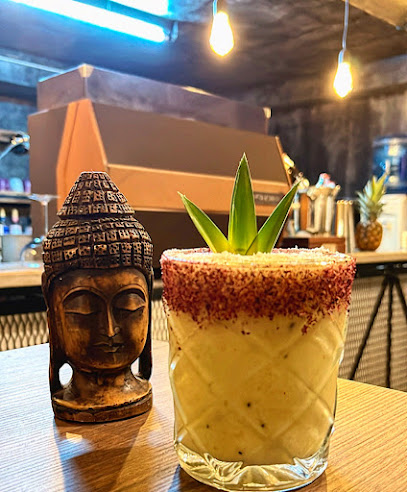
Wood’Z
Experience the vibrant flavors of Kairouan at Wood’Z, where traditional Tunisian cuisine meets modern culinary excellence.
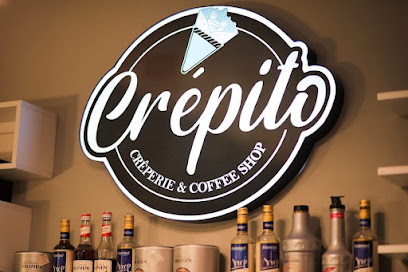
Lablabi Gabssi
Discover the authentic flavors of Tunisia at Lablabi Gabssi, a must-visit restaurant in Kairouan known for its exquisite Lablabi soup.
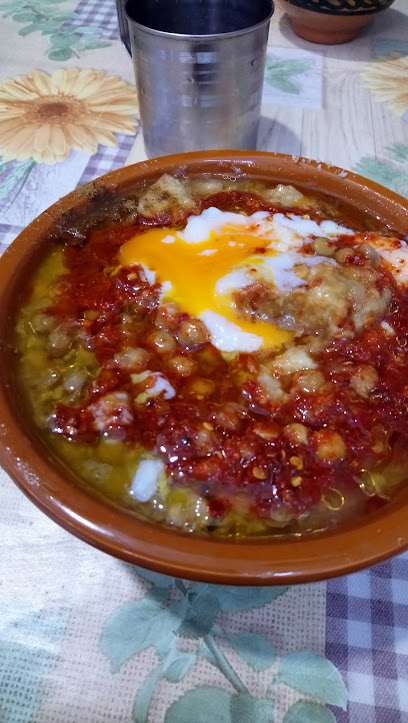
Tea Time - Kairouan (TUNISIA)
Discover the serene ambiance of Tea Time in Kairouan, where local flavors and relaxation blend perfectly for an unforgettable experience.
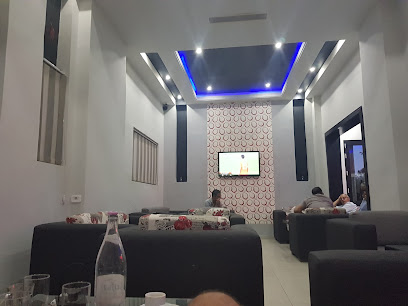
Local Phrases about Kairouan
-
- Helloمرحبا
[marhaba] - Goodbyeوداعا
[wada'an] - Yesنعم
[naam] - Noلا
[laa] - Please/You're welcomeمن فضلك
[min fadlik] - Thank youشكرا
[shukran] - Excuse me/Sorryعذرا
[aatharana] - How are you?كيف حالك؟
[kayfa haluk?] - Fine. And you?بخير. وأنت؟
[bi-khayr. wa-ant?] - Do you speak English?هل تتحدث الإنجليزية؟
[hal tatahadath al-inglizia?] - I don't understandلا أفهم
[la afham]
- Helloمرحبا
-
- I'd like to see the menu, pleaseأود أن أرى القائمة، من فضلك
[awad an ara alqaima, min fadlik] - I don't eat meatأنا لا آكل اللحم
[ana la akl allahm] - Cheers!في صحتك!
[fi sahtak!] - I would like to pay, pleaseأريد أن أدفع، من فضلك
[urid an adfaa, min fadlik]
- I'd like to see the menu, pleaseأود أن أرى القائمة، من فضلك
-
- Help!النجدة!
[alnajda!] - Go away!انصرف!
[ansiraf!] - Call the Police!اتصل بالشرطة!
[atisal bilshurtah!] - Call a doctor!اتصل بطبيب!
[atisal bitabib!] - I'm lostلقد ضللت
[laqad dalalt] - I'm illأنا مريض
[ana mareed]
- Help!النجدة!
-
- I'd like to buy...أريد أن أشتري...
[urid an ashtari...] - I'm just lookingأنا فقط أتطلع
[ana faqat atatalla] - How much is it?كم تكلف؟
[kam taklif?] - That's too expensiveهذا غالي جدا
[hatha ghali jiddan] - Can you lower the price?هل يمكنك تخفيض السعر؟
[hal yumkinuk takhfid alsiar?]
- I'd like to buy...أريد أن أشتري...
-
- What time is it?كم الساعة؟
[kam alsa'a?] - It's one o'clockالواحدة
[alwahida] - Half past (10)العاشرة والنصف
[alashira walnusf] - Morningصباح
[sabah] - Afternoonبعد الظهر
[ba'd alduhur] - Eveningمساء
[masa] - Yesterdayأمس
[ams] - Todayاليوم
[alyawm] - Tomorrowغدا
[ghadan] - 1واحد
[wahid] - 2اثنان
[ithnan] - 3ثلاثة
[thalatha] - 4أربعة
[arba'a] - 5خمسة
[khamsa] - 6ستة
[sitta] - 7سبعة
[sab'a] - 8ثمانية
[thamania] - 9تسعة
[tis'a] - 10عشرة
[ashara]
- What time is it?كم الساعة؟
-
- Where's a/the...?أين....؟
[ayna....?] - What's the address?ما هو العنوان؟
[ma hu al'awn?] - Can you show me (on the map)?هل يمكنك أن تريني (على الخريطة)؟
[hal yumkinuk an tarini (ala alkhari'ta)?] - When's the next (bus)?متى القادم (الحافلة)؟
[mata alqadim (alhafilah)?] - A ticket (to ....)تذكرة (إلى....)
[tazkirah (ila....)]
- Where's a/the...?أين....؟
History of Kairouan
-
Founded in 670 AD by the Arab general Uqba ibn Nafi, Kairouan quickly became a pivotal center for Islamic learning and culture. As one of the first cities established by the Arabs in North Africa, it played a crucial role in the spread of Islam throughout the Maghreb.
-
The Great Mosque of Kairouan, also known as the Sidi Okba Mosque, was built in the 7th century and is one of the oldest places of worship in the Islamic world. This architectural marvel is renowned for its massive prayer hall, impressive minaret, and extensive use of arcades, embodying early Islamic architectural styles.
-
During the 9th century, Kairouan flourished under the Aghlabid Dynasty. The Aghlabids were instrumental in developing the city's infrastructure, including the construction of the Aghlabid Basins, which served as a sophisticated water reservoir system. Their reign marked a golden age for the city in terms of cultural and scientific advancements.
-
In 909 AD, the Fatimid Caliphate conquered Kairouan, making it the capital of their expanding empire. Under Fatimid rule, Kairouan continued to be a major center for trade, scholarship, and religious studies until the capital was moved to Mahdia in 921 AD.
-
After the Fatimid capital moved to Mahdia, Kairouan experienced a gradual decline. Subsequent invasions and internal strife, particularly during the Hilalian invasions in the 11th century, further diminished its political and economic significance. However, it remained an important religious center.
-
In the 13th century, the Hafsid dynasty brought a period of revival to Kairouan. They restored many of the city's mosques and madrasas, emphasizing its religious importance. The Hafsids' efforts preserved Kairouan's status as a spiritual hub in the region.
-
In the modern era, Kairouan has been recognized for its rich historical and cultural heritage. In 1988, the city was designated as a UNESCO World Heritage Site. Today, Kairouan continues to attract visitors from around the world, drawn by its historical monuments, vibrant souks, and deep cultural roots.
Kairouan Essentials
-
Kairouan is located in central Tunisia and is accessible from several major cities. The nearest international airport is Tunis-Carthage International Airport, approximately 160 kilometers away. From Tunis, you can take a louage (shared taxi) or a bus to Kairouan. The journey typically takes around 2 to 3 hours by road. Another option is to fly into Monastir Habib Bourguiba International Airport, located about 90 kilometers away.
-
Kairouan is a relatively small city, making it easy to explore on foot. For longer distances, local taxis are readily available and affordable. The city also has a bus network connecting various parts of Kairouan and nearby towns. Louages (shared taxis) are a popular and cost-effective way to travel between cities in Tunisia. Car rentals are available for those who prefer to explore at their own pace.
-
The official currency in Tunisia is the Tunisian Dinar (TND). Credit cards are accepted in major hotels, restaurants, and some shops, but it is advisable to carry cash, especially in smaller establishments and markets. ATMs are widely available in Kairouan, but it's a good idea to withdraw sufficient cash in advance to avoid any inconveniences.
-
Kairouan is generally a safe destination for tourists, but it's important to take standard precautions. Avoid walking alone at night in poorly lit areas and keep an eye on your belongings in crowded places. While Kairouan doesn't have specific high-crime areas targeting tourists, it's always best to stay vigilant and aware of your surroundings.
-
In case of emergency, dial 197 for police assistance and 190 for medical emergencies. Kairouan has a local police station and medical facilities to handle emergencies. It is recommended to have travel insurance that covers medical emergencies. For minor health issues, there are pharmacies throughout the city where you can purchase over-the-counter medications.
-
Fashion: Do dress modestly, especially when visiting religious sites. Avoid wearing revealing clothing. Religion: Do respect local customs and traditions. Always remove your shoes and cover your head when entering mosques. Public Transport: Do be respectful and give up your seat to elderly passengers. Don't eat or drink on public transport. Greetings: Do greet people with a handshake or a simple 'Salam'. Avoid physical contact with the opposite gender unless initiated. Eating & Drinking: Do try local delicacies and accept food offerings graciously. Don't refuse hospitality, as it is considered impolite.
-
To experience Kairouan like a local, visit the local markets (souks) where you can buy traditional Tunisian goods and crafts. Engage with locals, as they are often friendly and willing to share stories about the city's history and culture. Don't miss visiting the Great Mosque of Kairouan and the Aghlabid Basins, which are significant historical landmarks. For a unique experience, try the local specialty, Makroud, a delicious date-filled pastry.
Trending Landmarks in Kairouan
-
Great Mosque of Kairouan
-
Kairouan Grand Mosque
-
Basins of Aghlabides
-
Barbier Mausoleum
-
Zaouia of Sidi Sahabi
-
Mosque of the Three Doors
-
House of the Governor
-
Médina de Kairouan
-
Museum of Carpets
-
Mausoleum Sidi Amor Abada
-
Mausoleé Sidi Amor Abada
-
Minaret of the Great Mosque of Kairouan
-
Bab El Jadid
-
Stadmauern Kairoan
-
Altstadt Kairouans
Nearby Cities to Kairouan
-
Things To Do in Monastir
-
Things To Do in Hammamet
-
Things To Do in Sfax
-
Things To Do in Tunis
-
Things To Do in Bizerte
-
Things To Do in Djerba
-
Things To Do in Annaba
-
Things To Do in Tozeur
-
Things To Do in Constantine
-
Things To Do in Xlendi
-
Things To Do in Gozo
-
Things To Do in Marsalforn
-
Things To Do in Xewkija
-
Things To Do in Xaghra
-
Things To Do in Mgarr










